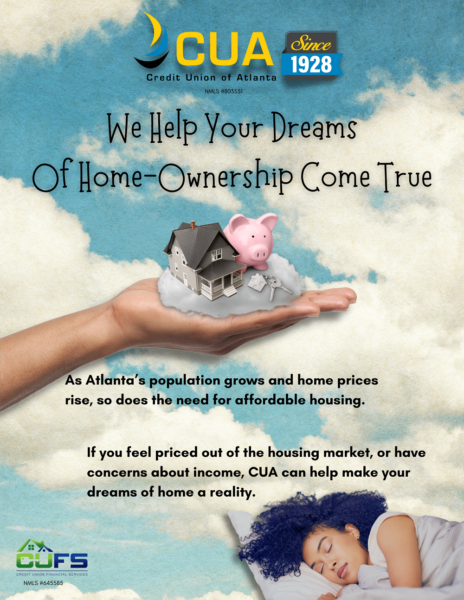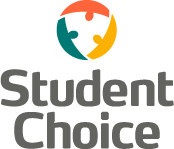The laws of supply and demand came home to roost hard for American homebuyers during the pandemic, and Atlanta is one example of what can happen when people with good jobs can’t cover those soaring prices.

As of February, the average price of a home sold in the big Sunbelt metro had risen to $460,000. The average monthly rental bill was approximately $2,100. The increases have created a squeeze play for members of institutions like Credit Union of Atlanta ($82.6M, Atlanta, GA), a Minority Depository Institution (MDI) whose 14,000 members are primarily civil service employees, including police officers, firefighters, and teachers.
“Our members are struggling to find homes within their budget,” says Taylor Drakeford, CUA’s retail credit administrator.
According to Drakeford, the median household income for members is $69,164. At today’s average interest rate, that would allow for the purchase of a home priced at $246,200 — more than $200,000 lower than the going price for Atlanta homes.
Working with Credit Union Financial Services (CUFS), CUA’s mortgage CUSO, the credit union is now approximately a year into offering a down payment assistance (DPA) program and a ground lease program, each of which makes homeownership more affordable in its own way.
Does your institution know what it means to pursue a purpose-driven strategy? Callahan’s Purpose Alignment Tool — developed in partnership with leading credit unions — provides a baseline purpose score with insight into employee tenure and role. Take the survey today to assess your organization’s operational understanding of purpose.
A Double Bottom Line
The DPA program is available through the Atlanta Housing Authority and offers qualified applicants a loan of up to $25,000 toward a downpayment for a home within Atlanta city limits. After six years, 20% of the loan is forgiven annually, and they are completely forgiven after 10 years, Drakeford says.
CUA also collaborates with the Atlanta Land Trust, a nonprofit community land trust organization, to offer members a route to affordable homeownership that continues to give back through a ground lease arrangement.
“The Land Trust acquires the land and maintains ownership, while prospective homeowners enter into long-term renewable leases. In return, the homeowner agrees to sell the home at resale-restricted and affordable pricing to another lower-income homebuyer in the future,” Drakeford says.
“There’s no greater feeling than hearing the excitement of how a family will decorate their young children’s rooms in a home they own.”
There’s a double bottom line here.
“The homeowner builds wealth from the investment while the organization preserves the public’s investment in the affordable home permanently to help family after family,” Drakeford says.
CUA is the only credit union participating in the land trust program, a program so popular the Atlanta Land Trust has implemented a lottery system to fairly accommodate requests.
A Year In And A Strong Response

CUA’s affordable housing initiatives have only been in place for a year but already have contributed to a 30% increase in the cooperative’s real estate portfolio, Drakeford says. That portfolio now represents approximately 20% of the credit union’s total lending.
CUA markets its initiatives through community events, email campaigns, and in-branch promotions that align seamlessly with its mission of providing affordable, responsible, and responsive financial services to members and the broader community. And, Drakeford says, the word spreads quickly.
“When we share to our membership on Tuesday night that there’s an information session coming up, I get an email Wednesday morning that we’re already at capacity,” she says.
CUA’s lending program includes a mix of technology and hands-on outreach in qualifying, educating, and processing its mortgages. CUFS provides automated application processes that would-be borrowers can complete from anywhere, including CUA’s two branches.
The application process has already provided some eye-opening information for the credit union, Drakeford says, through both data analysis and conversation.
“Our team found it interesting how many seasoned members were completing loan applications that showed they had been renting for years and before this had no plans of owning a home,” she says.
Building Family Legacies
That realization helped underline the need for financial education and to follow up with products and services that help make homeownership inclusive and sustainable.
CU QUICK FACTS
Credit Union of Atlanta
DATA AS OF 03.31.23
HQ: Atlanta, GA
ASSETS: $82.6M
MEMBERS:14,275
BRANCHES: 2
EMPLOYEES: 33
NET WORTH: 12.4%
ROA: 0.30%
“It’s important to step outside the box and find different ways to address a need that some might not see as conventional,” Drakeford says. “We are proud to be the only credit union on the list of big banks of preferred lenders for the Atlanta Land Trust, for example.”
According to Drakeford, the credit union’s mission is all about providing financial solutions to meet the needs and improve the quality of life for members. She says these programs do just that.
It’s rewarding to see a hard-working member that has rented their whole life because they didn’t think homeownership was possible to get the keys to a home to which they can attach their legacy,” the retail credit administrator says. “And there’s no greater feeling than hearing the excitement of how a family will decorate their young children’s rooms in a home they own. This is something so simple to some, but not everyone grew up thinking they had the right and resources to attain homeownership.”
Improve Your Mortgage Performance
Claim Your Mortgage Scorecard Today


